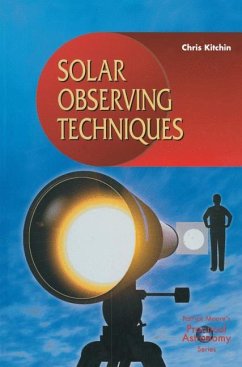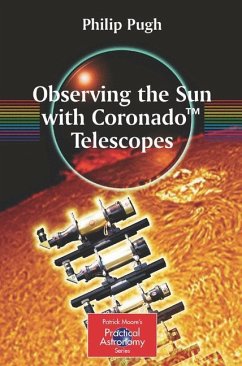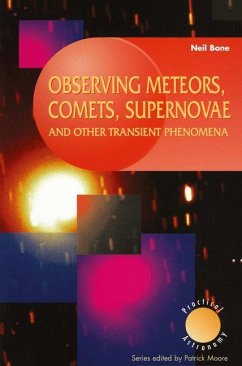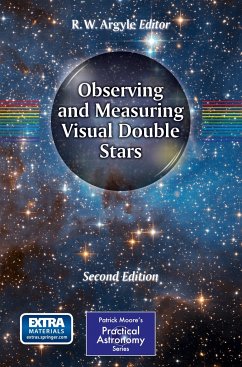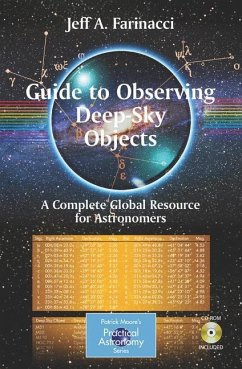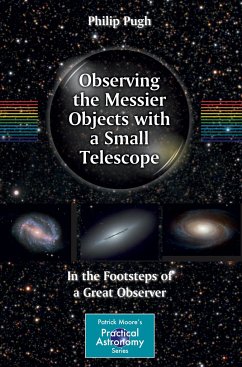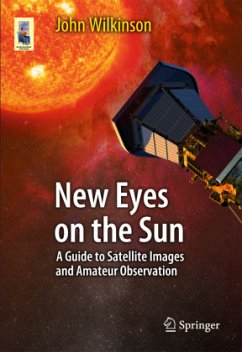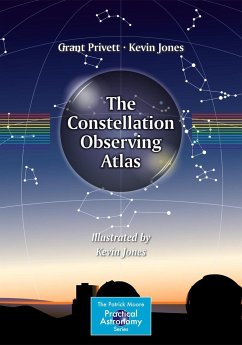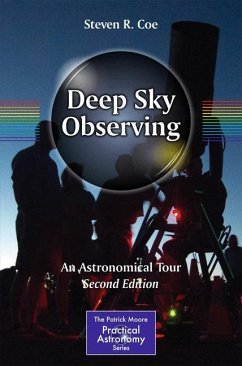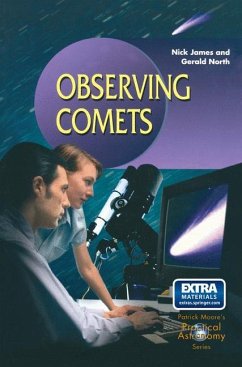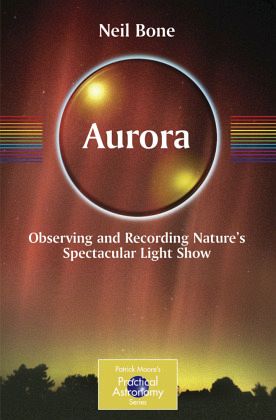
Aurora
Observing and Recording Nature's Spectacular Light Show

PAYBACK Punkte
12 °P sammeln!
For the majority of amateur astronomers, who live at the latitudes of North America, the British Isles and Australia, the aurora is a relatively infrequent visitor to the night sky. Major displays visible to the southern United States or the south of England occur perhaps 20 times in each 11-year sunspot cycle. When they occur, such auroral storms are a source of great interest and excitement.A number of books highlighting the impact of auroral/geomagnetic storms on communications and satellite technology have appeared in recent years . None, however, has addressed the observational angle. Thi...
For the majority of amateur astronomers, who live at the latitudes of North America, the British Isles and Australia, the aurora is a relatively infrequent visitor to the night sky. Major displays visible to the southern United States or the south of England occur perhaps 20 times in each 11-year sunspot cycle. When they occur, such auroral storms are a source of great interest and excitement.
A number of books highlighting the impact of auroral/geomagnetic storms on communications and satellite technology have appeared in recent years . None, however, has addressed the observational angle. This new book addresses a gap in the literature, offering an explanation of the aurora's causes, how the occurrence of major events may now be predicted, and how amateur observers can go about recording displays.
Observation of the more frequent displays seen at higher latitudes (the northern US, Canada, and Scotland, for example) are also covered in detail. Visual and photographic (chemical and digital) observations are most usual, but magnetic and radio recording of auroral effects is possible too.
While the principal aim of the book is to describe the aurora from the amateur observational viewpoint, it discusses professional studies of auroral/geomagnetic phenomena, to put amateur work in context.
A glossary gives concise explanations of necessary technical terms, and there is also a short bibliography.
A number of books highlighting the impact of auroral/geomagnetic storms on communications and satellite technology have appeared in recent years . None, however, has addressed the observational angle. This new book addresses a gap in the literature, offering an explanation of the aurora's causes, how the occurrence of major events may now be predicted, and how amateur observers can go about recording displays.
Observation of the more frequent displays seen at higher latitudes (the northern US, Canada, and Scotland, for example) are also covered in detail. Visual and photographic (chemical and digital) observations are most usual, but magnetic and radio recording of auroral effects is possible too.
While the principal aim of the book is to describe the aurora from the amateur observational viewpoint, it discusses professional studies of auroral/geomagnetic phenomena, to put amateur work in context.
A glossary gives concise explanations of necessary technical terms, and there is also a short bibliography.





